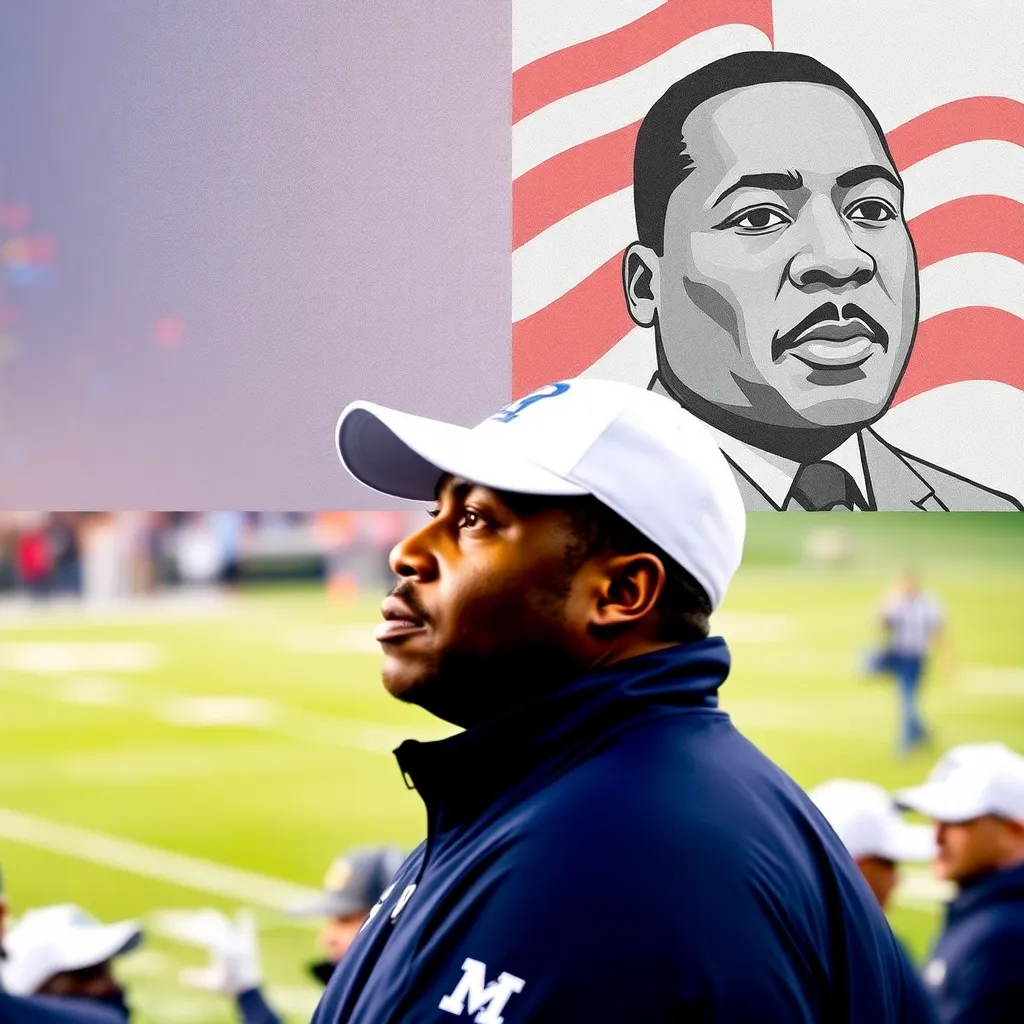
Monday night was a momentous occasion in the United States, marked by reflection, celebration, and a poignant reminder of the progress yet to be made. For Marcus Freeman, the head coach of Notre Dame’s football team, it was an opportunity to etch his name in history as the first Black head coach to win a major college football national championship. Unfortunately, his team fell short, and with it, a milestone moment for Black coaches in the sport.
The significance of Freeman’s journey cannot be overstated. In a sport where Black athletes dominate on the field, the sidelines are woefully underrepresented by Black coaches. According to data from the National Collegiate Athletic Association (NCAA), in 2022, only about 11% of head coaches in the Football Bowl Subdivision (FBS) were Black, despite Black players making up approximately 55% of the student-athletes. This disparity is a stark reminder of the systemic barriers that prevent qualified Black coaches from ascending to leadership positions.
Freeman’s ascension to the helm of Notre Dame’s program was seen as a beacon of hope for aspiring Black coaches. His success would have sent a powerful message, challenging the status quo and inspiring a new generation of coaches to pursue their dreams, regardless of their racial background. Instead, the outcome serves as a sobering reminder of the work still to be done.
The connections between Freeman’s fate and the broader societal context are hard to ignore. On a day when America was grappling with its complex history and ongoing struggles with racial equality, the outcome of the game felt like a microcosm of the larger issues at play. It highlighted the tension between progress and stagnation, hope and disappointment.
Despite the setback, Freeman’s presence and the conversation it sparks are crucial steps forward. His leadership and the visibility it brings to the issue of representation in coaching are invaluable. They underscore the need for concerted efforts to address the systemic inequalities that hinder the advancement of Black coaches.
In the aftermath of Monday night’s game, as the sports world and beyond reflect on what could have been, it’s essential to remember that progress is often incremental and that setbacks are an inevitable part of the journey. Marcus Freeman may not have achieved the breakthrough many had hoped for, but his legacy and the dialogue it fosters are undeniably significant. As we look to the future, it’s clear that the fight for representation and equality in coaching, much like in society at large, is far from over.







